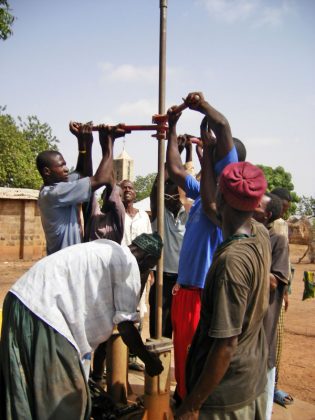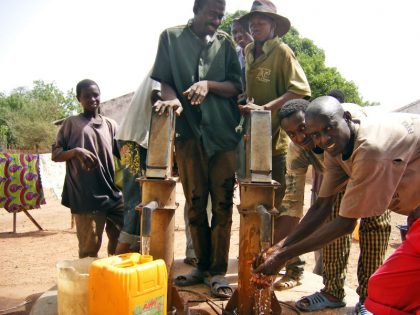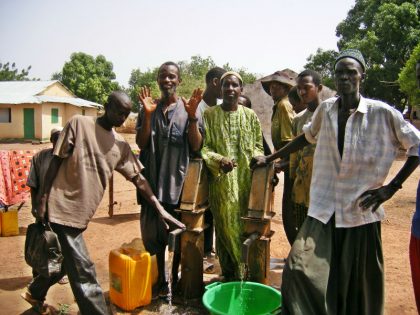 This project has been completed under the direction of Peace Corps Volunteer Scott Jorgensen. To read about the beginning of the project, CLICK HERE.
This project has been completed under the direction of Peace Corps Volunteer Scott Jorgensen. To read about the beginning of the project, CLICK HERE.
The project was to repair the two hand water pumps in Wallalan.
Scott reports:
On behalf of the community of Wallalan village in the North Bank Region of the Gambia, I am pleased to announce that work to repair the two closed well hand pumps has been completed. These two pumps provide the only clean drinking water source in the village and are labor-saving compared to drawing up water 32 meters from open wells. Before the completion of this project, the hand pumps were in constant cycles of breakdown and repair with second-hand parts and the community’s access to clean water was always in jeopardy.
One pump, the quicker fix, required a simple chain replacement at the pump handle to become serviceable again. For the second pump, the pump’s slip had cracked and was completely replaced with a new German-made part. Although a simple replacement procedure, this project was only made possible with the contribution of Appropriate Project funds, as the 25,000 Dalasi cost of the project is outside the economic reach of the small village of subsistence farmers (around 250 people). The slip itself was the single biggest
expense, costing 23,000 Dalasi. The project took longer than expected to complete because of the delay in finding a German-made slip that was compatible with our pump, but otherwise there were no complications.
Once again, from myself and from the entire village of Wallalan, thank you for supporting this project. Ease of access to clean water makes everyone’s lives immeasurably better here.
Some quotes from the village:
“Having a closed well is extremely important for the village’s health as we head into the rainy season. With clean water there will be much less water sicknesses like diarrhea.” –Buba Jawo, village health worker
“The pump is sweet. It is faster and easier than the open well. And the water is clean.” –Sarjo Bah, mother
Thanks to Scott for completing the project, and to The Soneva SLOW LIFE Trust for providing the funding.

